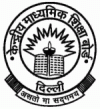
Central Board of Secondary Education
Shiksha Kendra, 2, Community Centre,
Preet Vihar, Delhi – 110 092
Expression of Interest:
EXPRESSION OF INTEREST is invited by the Central Board of Secondary Education from experienced and established training institutions/ agencies for Inservice training programs for the teachers (interactive and/ or online mode) at various locations in the country related to Continuous and Comprehensive Evaluation (CCE).
1. The Framework:
1.1 The Central Board of Secondary Education (CBSE), a registered society and an autonomous organization under Ministry of Human Resource Development, Government of India, is one of the three important national Boards. The main objectives of the Board are to serve the educational Institutions effectively and to be responsive to the educational needs of the students. The Board has 10,837schools affiliated with it including 150 schools in twenty one countries. There are Kendriya Vidyalayas, Government Schools, Jawahar Navodaya Vidyalaya, Central Tibetean Schools and Independent Schools affiliated to the Board. The prime focus of the Board is on :
(a) prescription of suitable curriculum for its various
schemes of examination in both academic and vocational streams.
(b) regularly updating the pedagogical skills of the teachers and administrators
by conducting in-service training programme and workshops,
c) setting norms for affiliation of institutions for the purpose of public
examination and;
d) prescribing as well as updating the course of instructions to raise the
academic standards in the country.
1.2 The Board’s policies are based on national policies of education and it has primarily adopted and adapted the National Curriculum Framework (NCF) 2005. The NCF 2005 operates on five guiding principles that envisage a learner centered curriculum, founded on the learner’s ability to construct his or her own knowledge (constructivism) thus giving primacy to the learner. It advocates teaching to facilitate knowledge construction, evaluation as diagnostic to remediate, refine and improve learning processes. As learner’s readiness to take an examination has become paramount, thus, the examination reforms were a logical consequence. Evaluation for learning was to be a major shift in the extant paradigms of examination oriented learning. As a major step of reform in this direction was making the board examination in class X optional especially when the certificate is not very important for further continuance of studies. 1.3 To realize the above objectives, the Board has strengthened several of its academic initiatives treading beyond its direct mandate as an examination body such as periodic guidelines and training programs to encourage innovation in teaching-learning methodologies; advocated joyous learning without burden in primary and upper primary; and implemented the process of CCE in primary encouraging for extension in upper primary. It had extended it to the secondary classes by including a component of internal assessment in the external examination of class X.
1.4 Notwithstanding all these efforts to streamline pedagogic practices, the one- time board examination still reigned supreme and remained the focus of pedagogy instead of being learner centric. Hence, the MHRD/CABE endorsed the NCF recommendation of making board exam optional in class X as appropriate for implementation. This, inter alia, also included making the evaluation more comprehensive and continuous to assess both scholastic and co scholastic abilities of the students i.e. Continuous and Comprehensive Evaluation (CCE). This further required empowerment of schools to decide the selection of appropriate evaluation tools for facilitating individualized instruction and enhancing the quality of learning in respect of each child placed in the custody of the teacher.
1.5 The philosophy of CCE takes cognizance of two important factors, namely the various components of human personality that govern the process of learning and continuous assessment of all these to facilitate perpetual refinement of construction of knowledge. In operational terms, it would mean designing effective evaluation tools that would serve for formative and summative stages of learning.
1.6 The Board has taken various thoughtful initiatives to prepare a comprehensive road map to operationalize and implement the examination reforms of the government in a time bound and effective manner with public interest at focus. One such initiative is implementation of the Continuous and Comprehensive Evaluation (CCE) from October 2009 in Class IX onwards. The Board has conducted Master Trainer programs at 95 venues across the country covering more than 7,000 affiliated schools and teachers in excess of 20,000
